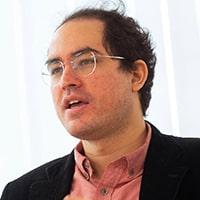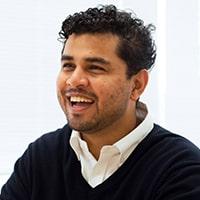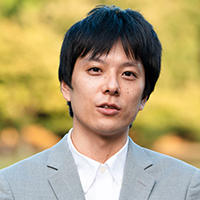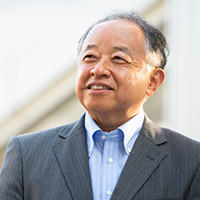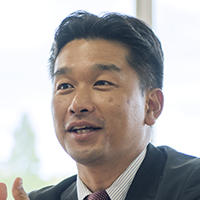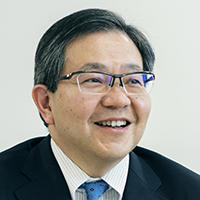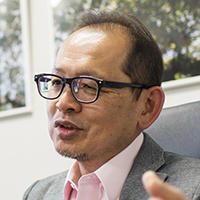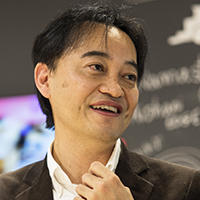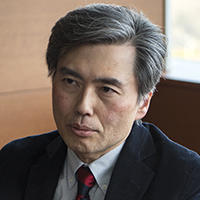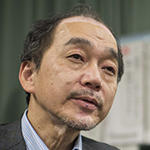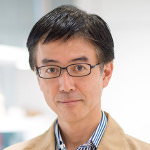Sun K. Kim
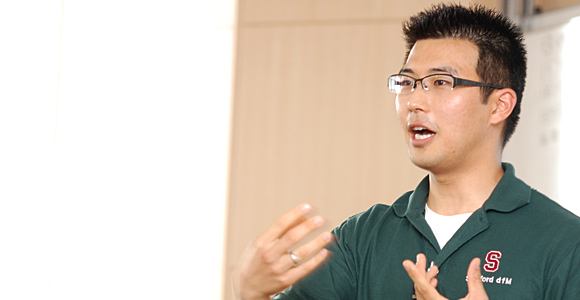
SDM aims at new value creation based on interactions of people with various backgrounds.
Sun K. Kim, Ph.D.
Global COE Research Fellow;
Assistant Professor, Keio University
ALPS is becoming a model curriculum for Japanese universities and companies.
The Active Learning Project Sequence (ALPS) is a capstone experience for Keio's Graduate School of System Design and Management (SDM). The curriculum is a collaborative development among Keio University, MIT and Stanford University. The faculty team combined their experience to use the System Development "V-Model" as a roadmap for the curriculum. Whereas team project-based learning of engineering design has attracted wide acceptance, it is still rare to see a curriculum that addresses high level societal needs involving diverse students with technical and non-technical backgrounds and a wide range of practical experience. ALPS set a high level "Voice of Society," from which the project teams generated solution scenarios, identified requirements, and described the proposed system using appropriate prototypes of not only hardware, but other amorphous means.
ALPS is becoming a model curriculum for Japanese universities and companies. Last year, we introduced the elevator pitch competition with venture capitalists and encouraged students to enter entrepreneurship competitions which led to a formation of an actual company. This year, we are partnering with industry, government and nonprofit organizations to make real impact in the society through ALPS projects.
Globalization
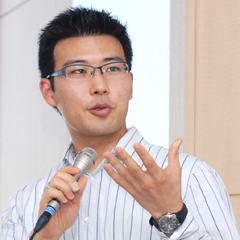 The current state of Japan requires people with state-of-the-art information technology skills, the ability to communicate through multiple media. In addition, they need people to understand policies such as law and regulations, have financial aptitude, and can create new systems and manage them. Keio established the Graduate School of System Design and Management (Keio SDM) in April, 2008 with the goal of educating such people. Keio SDM seeks to produce systems-oriented leaders who can effectively create safe and environmentally sound systems in an age of globalization (Security, Safety, Sustainable, Symbiosis: S4). The typical skills of SDM aims to produce two types of people; 1) Creative system designers who can propose new technical systems compatible with a rapidly changing environment that includes diverse interests and requirements, as well as in transnational frames, create new markets, and manage new businesses. 2) Project managers who can manage complex, large-scale systems and who have a deep insight into all processes of the life cycle including planning, design, assembly, operations, and recycling.
The current state of Japan requires people with state-of-the-art information technology skills, the ability to communicate through multiple media. In addition, they need people to understand policies such as law and regulations, have financial aptitude, and can create new systems and manage them. Keio established the Graduate School of System Design and Management (Keio SDM) in April, 2008 with the goal of educating such people. Keio SDM seeks to produce systems-oriented leaders who can effectively create safe and environmentally sound systems in an age of globalization (Security, Safety, Sustainable, Symbiosis: S4). The typical skills of SDM aims to produce two types of people; 1) Creative system designers who can propose new technical systems compatible with a rapidly changing environment that includes diverse interests and requirements, as well as in transnational frames, create new markets, and manage new businesses. 2) Project managers who can manage complex, large-scale systems and who have a deep insight into all processes of the life cycle including planning, design, assembly, operations, and recycling.
People who graduate from Keio SDM must be able to make correct judgments utilizing effective communication in the organization and take a leadership role in the enterprise. Moreover, SDM aims at new value creation based on interactions of people with various backgrounds. Therefore, the program welcomes not only engineers and scientists, but people with backgrounds in marketing, consulting, journalism, law, management, public policy, research, and academia.

